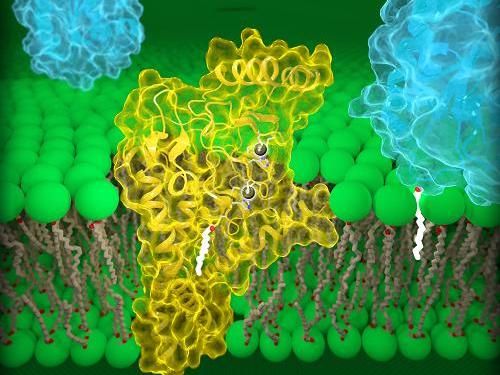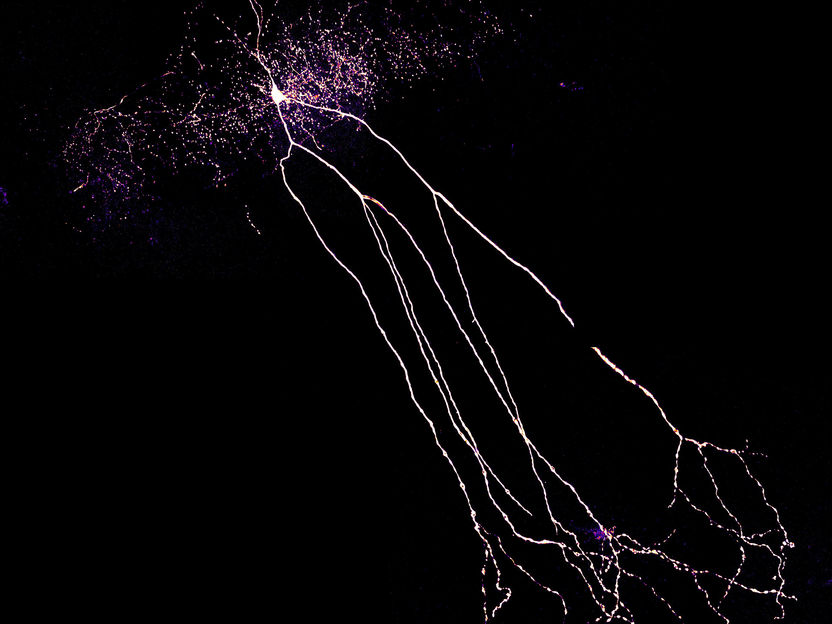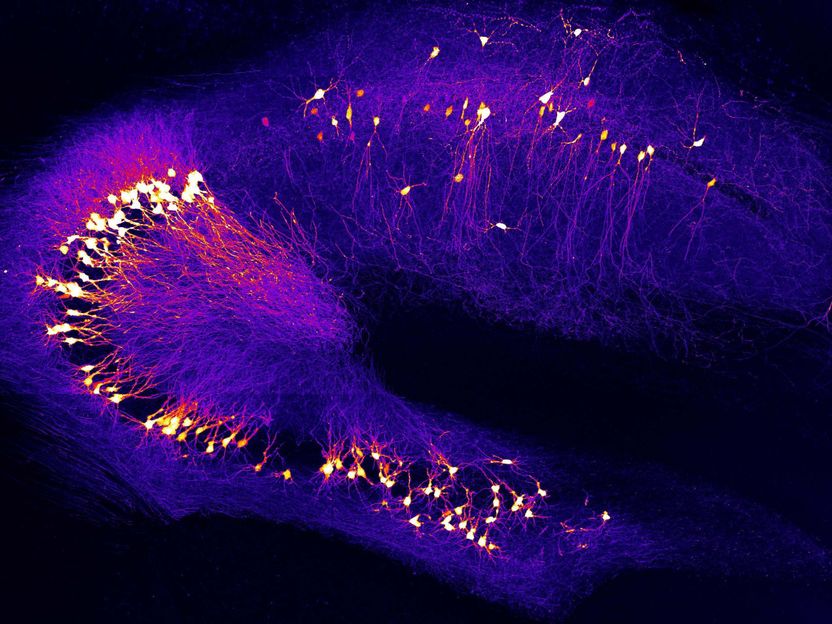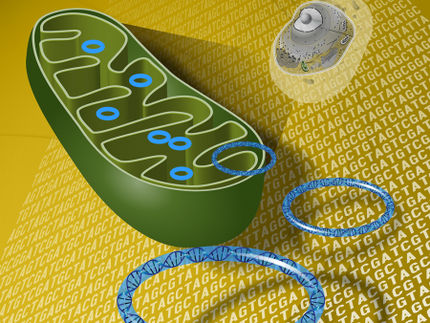First 3-D structure of DHHC enzymes reported
The first three-dimensional structure of DHHC proteins--enzymes involved in many cellular processes, including cancer--explains how they function and may offer a blueprint for designing therapeutic drugs. Researchers have proposed blocking DHHC activity to boost the effectiveness of first-line treatments against common forms of lung and breast cancer. However, there are currently no licensed drugs that target specific DHHC enzymes. The study, was led by researchers at the Eunice Kennedy Shriver National Institute of Child Health and Human Development (NICHD).

Human DHHC20 (yellow) is embedded in the Golgi membrane (green), a compartment located inside cells. DHHC20 attaches a fatty acid chain (white) to a target protein (blue, foreground), which anchors the protein to the Golgi membrane.
Jeremy Swan, NICHD/NIH
DHHC enzymes, also called palmitoyltransferases, modify other proteins by attaching to them a chain of lipids, or fatty acids, of varying lengths. This modification, called palmitoylation, can change many properties of a target protein, such as its structure, function and location within a cell. Researchers estimate that nearly 1,000 human proteins undergo palmitoylation, including epidermal growth factor receptors (EGFRs). A well-known EGFR is HER2, which is overactivated in aggressive forms of breast cancer. EGFRs can also be overactivated in colon cancer, and non-small cell lung cancer, the most common type of lung cancer.
The current study details the structures of a human DHHC enzyme, DHHC20, and the zebrafish version of another DHHC enzyme, DHHC15. Importantly, DHHC20 is the enzyme that palmitoylates EGFR. Previous studies have shown that blocking DHHC20 makes cancer cells more vulnerable to existing FDA-approved treatments that target EGFR. Therefore, understanding the structure of DHHC20 may be important for treating EGFR-driven cancers.
"Mutations in DHHC enzymes are associated with various cancers and neurological disorders," according to Anirban Banerjee, Ph.D., the study's lead author and head of NICHD's Unit on Structural and Chemical Biology of Membrane Proteins. "Our study offers a starting point for developing DHHC20 inhibitors that may aid in treatment of common cancers and advance the field of protein palmitoylation."
Dr. Banerjee and colleagues identified a structural component, a cavity, of DHHC20 that influences the length of its lipid chain. Mutations that altered the relative size of this cavity caused DHHC20 to use shorter or longer lipid chains, which presumably changes the effects of palmitoylation on a target protein. The researchers propose that the structure of this site explains why different DHHC enzymes use certain lipid chains to modify the functions of other proteins. It also offers insight on how multiple enzymes work together in states of health and disease.
Original publication
Rana MS, Kumar P, Lee CJ, Verardi R, Rajashankar KR, and Banerjee A.; "Fatty acyl recognition and transfer by an integral membrane S-acyltransferase"; Science; 2018
Most read news
Original publication
Rana MS, Kumar P, Lee CJ, Verardi R, Rajashankar KR, and Banerjee A.; "Fatty acyl recognition and transfer by an integral membrane S-acyltransferase"; Science; 2018
Topics
Organizations
Other news from the department science

Get the life science industry in your inbox
By submitting this form you agree that LUMITOS AG will send you the newsletter(s) selected above by email. Your data will not be passed on to third parties. Your data will be stored and processed in accordance with our data protection regulations. LUMITOS may contact you by email for the purpose of advertising or market and opinion surveys. You can revoke your consent at any time without giving reasons to LUMITOS AG, Ernst-Augustin-Str. 2, 12489 Berlin, Germany or by e-mail at revoke@lumitos.com with effect for the future. In addition, each email contains a link to unsubscribe from the corresponding newsletter.
Most read news
More news from our other portals
Last viewed contents
SAPHO_syndrome
International_Conference_on_Emerging_Infectious_Diseases

Epilepsy: Function of "brake cells" disrupted
Insert_(molecular_biology)
Category:Animal_physiology
KI becomes first university in Sweden to offer open online courses for a global student audience
Axel Ullrich named winner of 2009 Dr. Paul Janssen Award for Biomedical Research
Cooperation between BlueSens and EXPUTEC
Melanocortin_1_receptor
Multiple_endocrine_neoplasia_type_1






















































